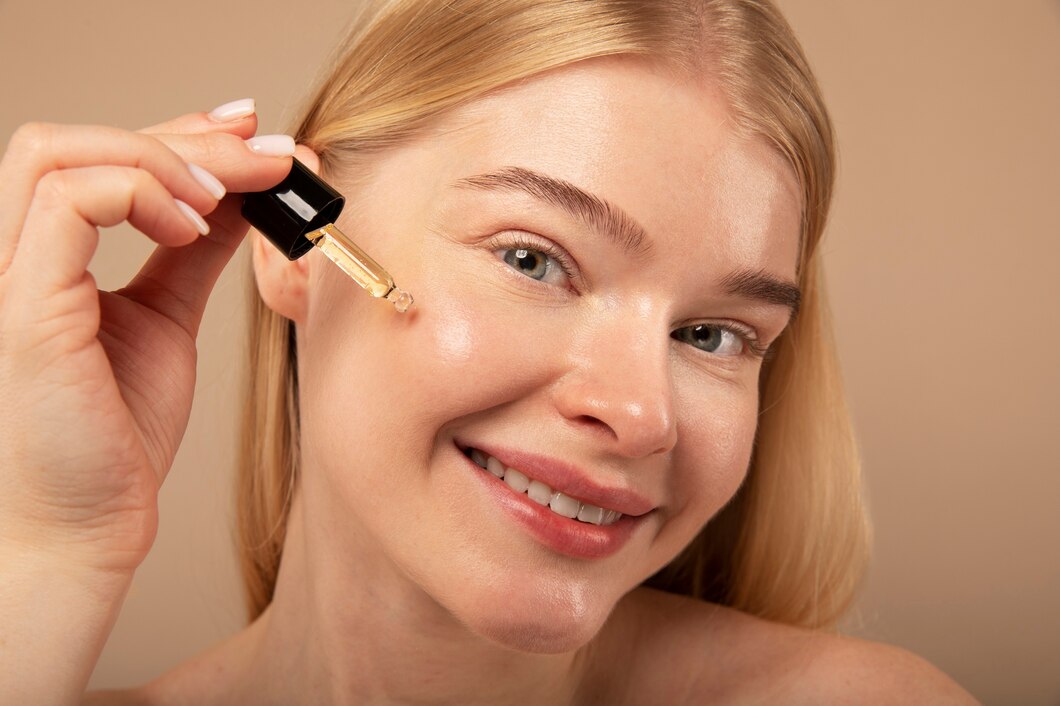Retinol and retinal are two powerful skincare ingredients that have gained widespread popularity for their ability to improve skin texture, reduce wrinkles, and promote a more youthful complexion. While they belong to the same family of compounds known as retinoids, they differ in terms of potency and effectiveness. Understanding the distinctions between retinol and retinal can help you choose the best option for your skincare needs.
Retinol: The Gold Standard
Retinol, a derivative of vitamin A, has long been hailed as the gold standard in anti-aging skincare. When applied topically, retinol undergoes conversion into retinoic acid, the active form of vitamin A, within the skin. This process stimulates collagen production, accelerates cell turnover, and enhances skin renewal, leading to smoother, firmer, and more radiant skin.
Benefits of Retinol:
- Wrinkle Reduction: Retinol can minimize the appearance of fine lines, wrinkles, and crow’s feet by promoting collagen synthesis and improving skin elasticity.
- Texture Improvement: Regular use of retinol can refine skin texture, reduce pore size, and even out skin tone, resulting in a smoother and more uniform complexion.
- Acne Treatment: Retinol’s exfoliating properties help unclog pores, prevent acne breakouts, and reduce the formation of blackheads and whiteheads.
- Sun Damage Repair: Retinol can help repair sun-damaged skin by stimulating cell turnover and promoting the growth of new, healthy skin cells.
Retinal: The Next Generation
Retinal, also known as retinaldehyde, is a more potent form of vitamin A compared to retinol. It requires one less conversion step within the skin to become active, making it more efficient in delivering benefits. Retinal is considered a gentle yet effective alternative for individuals with sensitive skin or those seeking faster results without the potential side effects associated with stronger retinoids.
Benefits of Retinal:
- Enhanced Efficacy: Due to its closer resemblance to retinoic acid, retinal offers faster and more noticeable results in improving skin texture, reducing wrinkles, and promoting collagen production.
- Less Irritation: While retinal is potent, it tends to be gentler on the skin compared to prescription-strength retinoids like tretinoin, making it suitable for individuals with sensitive or reactive skin.
- Anti-inflammatory Properties: Retinal possesses anti-inflammatory properties that can help soothe and calm irritated skin, making it an ideal choice for those prone to redness or inflammation.
- Antioxidant Benefits: Retinal functions as a potent antioxidant, protecting the skin against free radical damage caused by environmental stressors like UV radiation and pollution.
Choosing the Right Option
When it comes to selecting between retinol and retinal, the choice often depends on individual skin concerns, tolerance levels, and desired outcomes. Here are some factors to consider:
- Skin Sensitivity: If you have sensitive skin or are new to using retinoids, starting with a lower concentration of retinol may be advisable to minimize the risk of irritation.
- Desired Results: For those seeking faster and more significant improvements in skin texture and appearance, retinal may offer a more potent solution with fewer conversion steps required.
- Tolerance Level: Gradually increasing the frequency and concentration of retinol or retinal products can help build tolerance and minimize potential side effects such as dryness, redness, or peeling.
- Combination Therapy: Some skincare formulations combine retinol with other beneficial ingredients like hyaluronic acid, peptides, or antioxidants to enhance efficacy and minimize irritation.
Both retinol and retinal are potent skincare ingredients that can deliver remarkable anti-aging benefits when incorporated into a regular skincare routine. While retinol serves as the classic choice with proven efficacy and versatility, retinal offers a more potent and efficient alternative for individuals seeking faster results with less potential for irritation. Ultimately, the best option depends on your skin type, concerns, and preferences. Consulting with a dermatologist or skincare professional can help determine the most suitable retinoid regimen tailored to your specific needs, ensuring optimal results with minimal risk of adverse effects.








